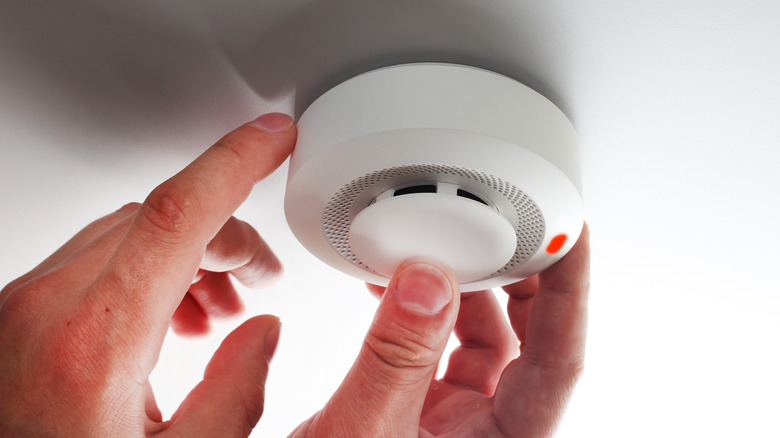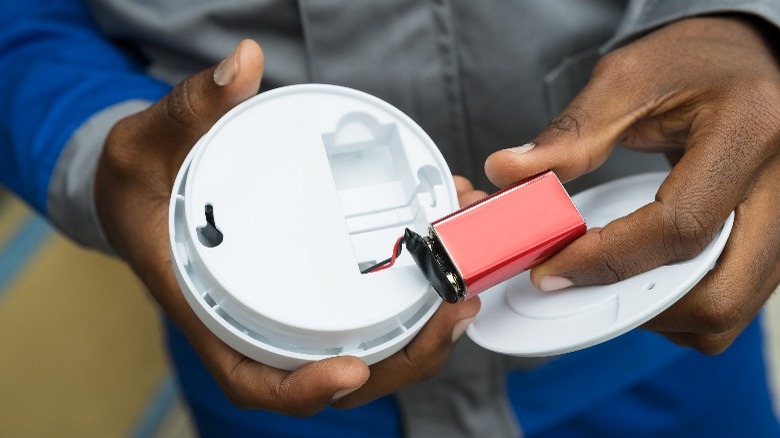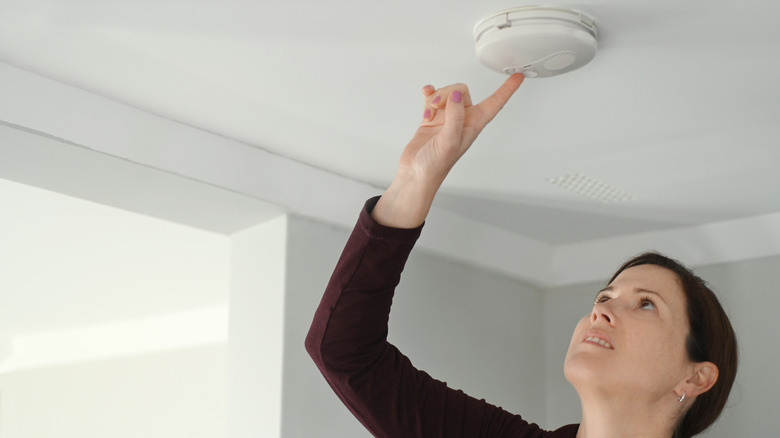Here's How Often You Should Replace Your Smoke Detectors
A working smoke detector is your best defense against losing lives in a house fire. Unfortunately, many people who have smoke detectors installed in their homes are unaware that they do not work due to dead batteries or the age of the smoke detector. The Consumer Product Safety Commission estimates that of the approximately 90% of U.S. households that have smoke alarms installed, 20% of those households, about 16 million of them, do not have any working alarms. This is a troubling statistic given that fire is the second leading cause of unintentional death in the home, with nearly 2,700 people dying in residential fires every year.
Knowing when to change your smoke detector and its batteries, as well as knowing how to test and ensure your smoke detector is properly working, is essential in order to ensure yourself and your family the best chance of survival in the event of a house fire.
Change your batteries and your detector
Regularly changing the batteries in your smoke alarm is important to ensure your smoke detector is in working order and will allow you and your family to have a quick and proper response time in the event of a house fire. Changing your smoke detector batteries when you change your clocks for daylight saving time is a good way to remind yourself to change them every six months, which is recommended by the U.S. Fire Administration. If you live in an area without Daylight Saving Time, you can put a note on your calendar.
You should also be changing your smoke detector itself, not just the batteries. Because the alarm sensors on your smoke detector can wear out over time, it is recommended you get a new smoke detector every ten years. According to the Texas Department of Insurance, alarms have labels showing when they were made, which can help you know when it is time to get a new one. If you don't see a label, it's likely the alarm is already old enough to need a replacement.
Perform monthly alarm tests
Being proactive about testing and maintaining your smoke detector is the best way to ensure you have one that will work properly in the event of a fire. The Consumer Product Safety Commission recommends testing your alarm every month by pressing the "test" button on the device. If the alarm sounds, your device is properly working. If not, it may be time to replace the batteries. A "chirping sound" or a singular beep from your smoke detector when you are not testing it also means it is time to replace the batteries.
According to the Texas Department of Insurance, dust and cobwebs that often accumulate on smoke alarms can make it harder for them to detect smoke. To preserve your alarms and keep them working properly, dust them with a vacuum cleaner attachment. Consider doing this when you change the batteries or perform your monthly tests so that you don't forget and so you can rest peacefully knowing your smoke detectors are in working order.


